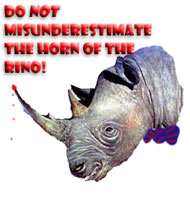May 23, 2005
Papist Plum Blogging
Courtesy of Enoch Soames, Esq., it's the Wodehouse Apostolate:
It is rare that one finds a good collection of P.G. Wodehouse (1881-1975) in any English-speaking home nowadays. But in Catholic homes his works ought to be right below the missals, the Latin primers, the Douay-Rheims Bible and the Imitation of Christ. For we cannot always be reading religious books, not even the holiest of us. Our leisure ought therefore to be such that it strengthens and reinforces the spiritual progress we make each day by prayer and by penance. And there is probably no writer more appropriate for Catholic leisure than Pelham Grenville Wodehouse (pronounced 'Woodhouse'), in whose shadow even Dante would tremble for his unworthiness.
.........
Along with the King James Bible and a very few other works, his output represents the English language at its purest. Of the ninety or so books that poured out from his hand before his death in 1973, at least half come as close to perfection in art as we can. He was the last and one of the greatest writers of Christendom.
And how exactly does Plum tie in with the Almighty? Mr. Woo gives us the clue:
As Waugh once remarked, 'for Wodehouse there has been no fall of Man...the gardens of Blandings Castle are the original gardens of Eden from which we are all exiled'. We should all thirst after this world before our exile, the beautiful works of the Lord unsullied by our wickedness. We all know in our hearts what this unfallen world once was, but some of us, for a variety of reasons, choose to forget about it. These same reasons lead us to ignore Wodehouse. To love Wodehouse may not be necessary for our eternal salvation, but we must say that we find it very hard to believe that anyone who knowingly rejects him is all right with God.
Read the rest. Also, I concur with the WA's assessment of the right books with which to start. Leave It To Psmith was my first novel, although I read the early Bertie & Jeeves stories at about the same time.
Comments
Post a comment






